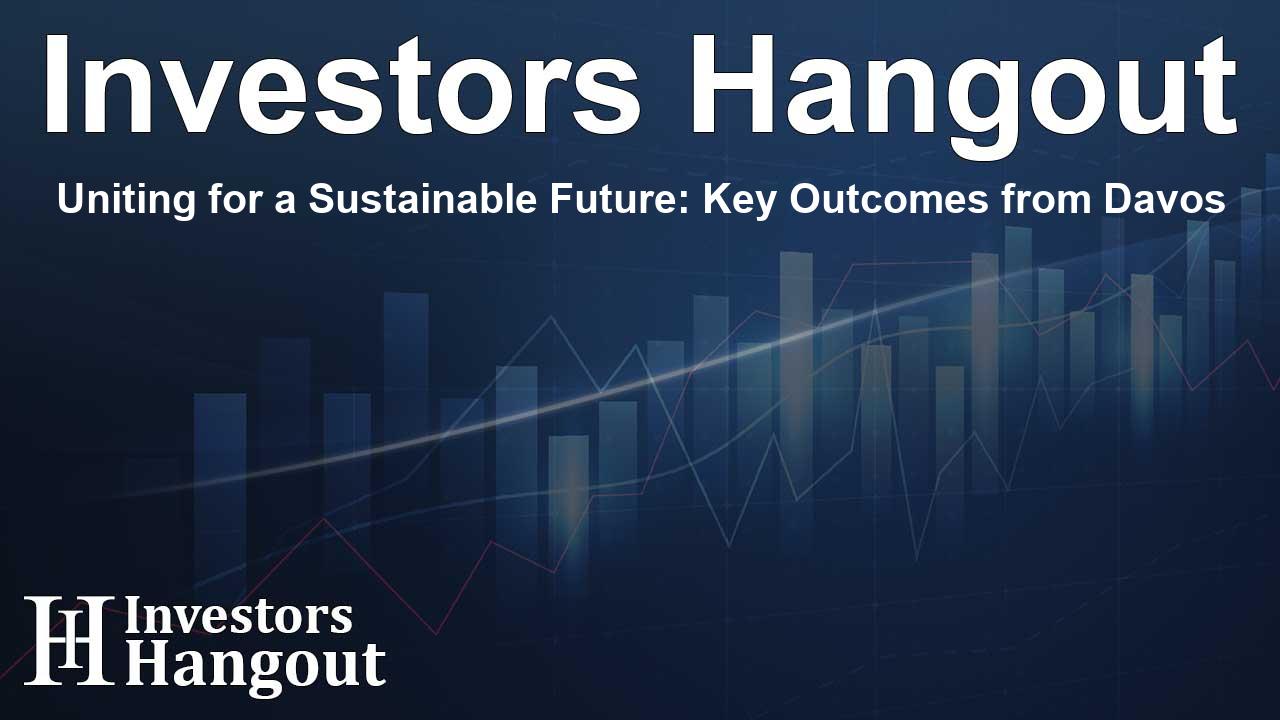Uniting for a Sustainable Future: Key Outcomes from Davos

Comprehensive Solutions at Davos for Global Development
The United Nations Global Compact has recently concluded a series of impactful sessions during the World Economic Forum Annual Meeting in Davos, emphasizing the essential involvement of businesses in tackling global issues through the Sustainable Development Goals (SDGs).
These discussions were held in a collaborative venue known as the SDG Tent, where leaders from various sectors, including business, government, and civil society, gathered to exchange ideas about sustainable growth, the development of human capital, and the preservation of our planet.
Thematic Focus on Collaboration
This year, the Davos theme was centered around Collaboration for the Intelligent Age, which showcased numerous opportunities aimed at addressing geo-economic fragmentation, harnessing technological advances, and fostering inclusive economic growth.
Key Highlights from the UN Global Compact Events
Among the significant activities facilitated by the UN Global Compact at Davos, several stood out:
- Investments in Technology and Innovation: A breakfast session focused on the transformative power of AI and emerging technologies, specifically targeting efforts in gender equality, sustainable finance, and fostering inclusive economic development.
- Leadership Dialogues Luncheon: This exclusive gathering brought together UN Global Compact Board members and influential CEOs to discuss a roadmap for policy advocacy, setting priorities for pivotal global events, including COP30 and the World Social Summit.
- Water Resilience Coalition CEO Circle: A confidential meeting highlighted the potential role of AI in achieving water resilience, aiming at impacting 100 water-stressed basins by 2030.
- From Silos to Synergy: This panel discussion focused on the transformative potential of sustainable procurement in advancing the SDGs. It introduced a partnership with the Watch and Jewelry Initiative to streamline operations for buyers and suppliers, ensuring widespread industry adoption across different brands. The conversation also highlighted how procurement could empower women- and youth-owned businesses, enhance transparency using AI, and reshape industries towards sustainability.
Addressing Global Challenges Through Partnerships
The discussions highlighted the critical roles that innovative partnerships, financial solutions, and cutting-edge technologies play in tackling global challenges. These include pressing issues such as climate change, resource sustainability, economic disparities, and the ethical deployment of AI technologies.
Reflecting on the outcomes of the week, Sanda Ojiambo, the CEO and Executive Director of the UN Global Compact, commented on the significance of these gatherings: "In a time marked by remarkable technological advancements and global complexities, the involvement of businesses in achieving the Sustainable Development Goals becomes increasingly crucial. At Davos, we witnessed how collaboration could unlock innovation, stimulate investment, and foster transformative solutions that positively impact both people and the planet. Together, we are on a path to a more sustainable, inclusive, and resilient future."
Alignment with Core Themes of the Annual Meeting
The sessions conducted by the UN Global Compact were closely aligned with the main themes of the Annual Meeting, which focused on reimagining growth, protecting the environment, and investing in people. These discussions stressed the need for collaboration across various sectors to establish stronger, more resilient economies and effectively address common challenges.
About the UN Global Compact
The UN Global Compact aims to amplify and enhance the worldwide collective impact that businesses can have by adhering to the Ten Principles and supporting the SDGs through responsible corporate practices and ecosystems designed to facilitate change. With an impressive participation of over 20,000 companies and a diverse network of 5 Regional Hubs and 63 Country Networks spanning 80 nations, the UN Global Compact stands as the largest corporate sustainability initiative globally, uniting businesses to promote a better world.
Frequently Asked Questions
What is the UN Global Compact?
The UN Global Compact is a global initiative to encourage businesses to adopt sustainable and socially responsible policies, aligning operations with the Sustainable Development Goals.
What were the key themes discussed at Davos?
The discussions focused on sustainable development, technology-driven solutions, economic resilience, and the importance of collaborative partnerships.
Who participated in the UN Global Compact sessions?
Leaders from business, government, and civil society participated to explore collaborative solutions for global challenges.
What are the Sustainable Development Goals?
The SDGs are a collection of 17 global goals set by the United Nations, aimed at addressing various social and environmental challenges by 2030.
How does the UN Global Compact support businesses?
The initiative provides resources, guides, and frameworks to help businesses align with sustainability objectives and implement responsible practices.
About Investors Hangout
Investors Hangout is a leading online stock forum for financial discussion and learning, offering a wide range of free tools and resources. It draws in traders of all levels, who exchange market knowledge, investigate trading tactics, and keep an eye on industry developments in real time. Featuring financial articles, stock message boards, quotes, charts, company profiles, and live news updates. Through cooperative learning and a wealth of informational resources, it helps users from novices creating their first portfolios to experts honing their techniques. Join Investors Hangout today: https://investorshangout.com/
Disclaimer: The content of this article is solely for general informational purposes only; it does not represent legal, financial, or investment advice. Investors Hangout does not offer financial advice; the author is not a licensed financial advisor. Consult a qualified advisor before making any financial or investment decisions based on this article. The author's interpretation of publicly available data presented here; as a result, they should not be taken as advice to purchase, sell, or hold any securities mentioned or any other investments. If any of the material offered here is inaccurate, please contact us for corrections.